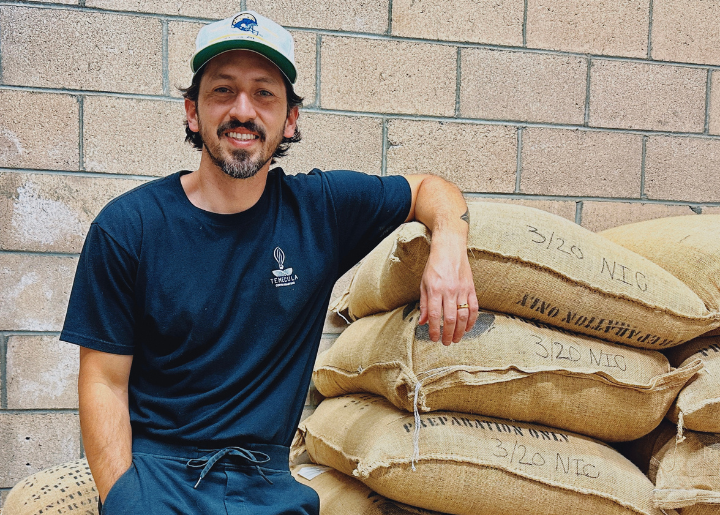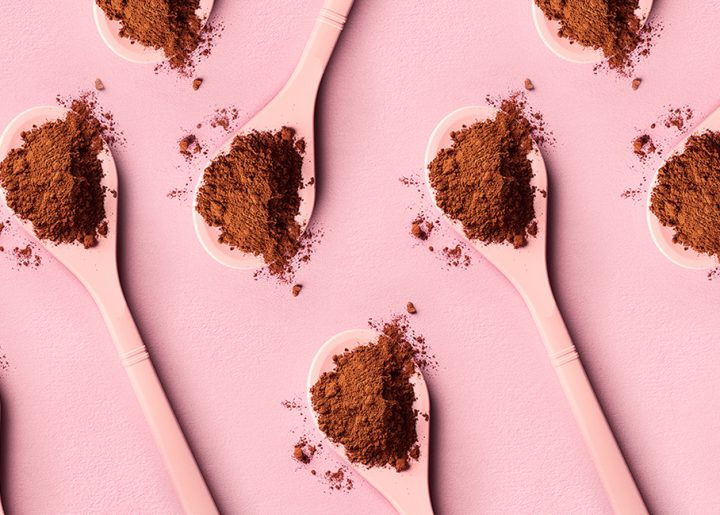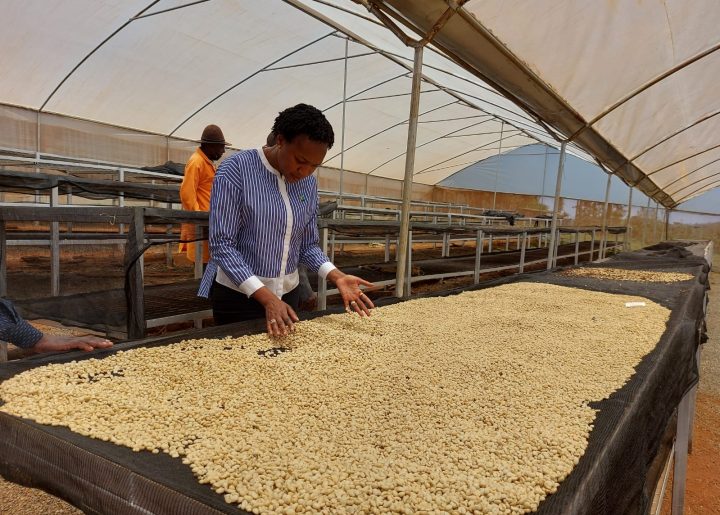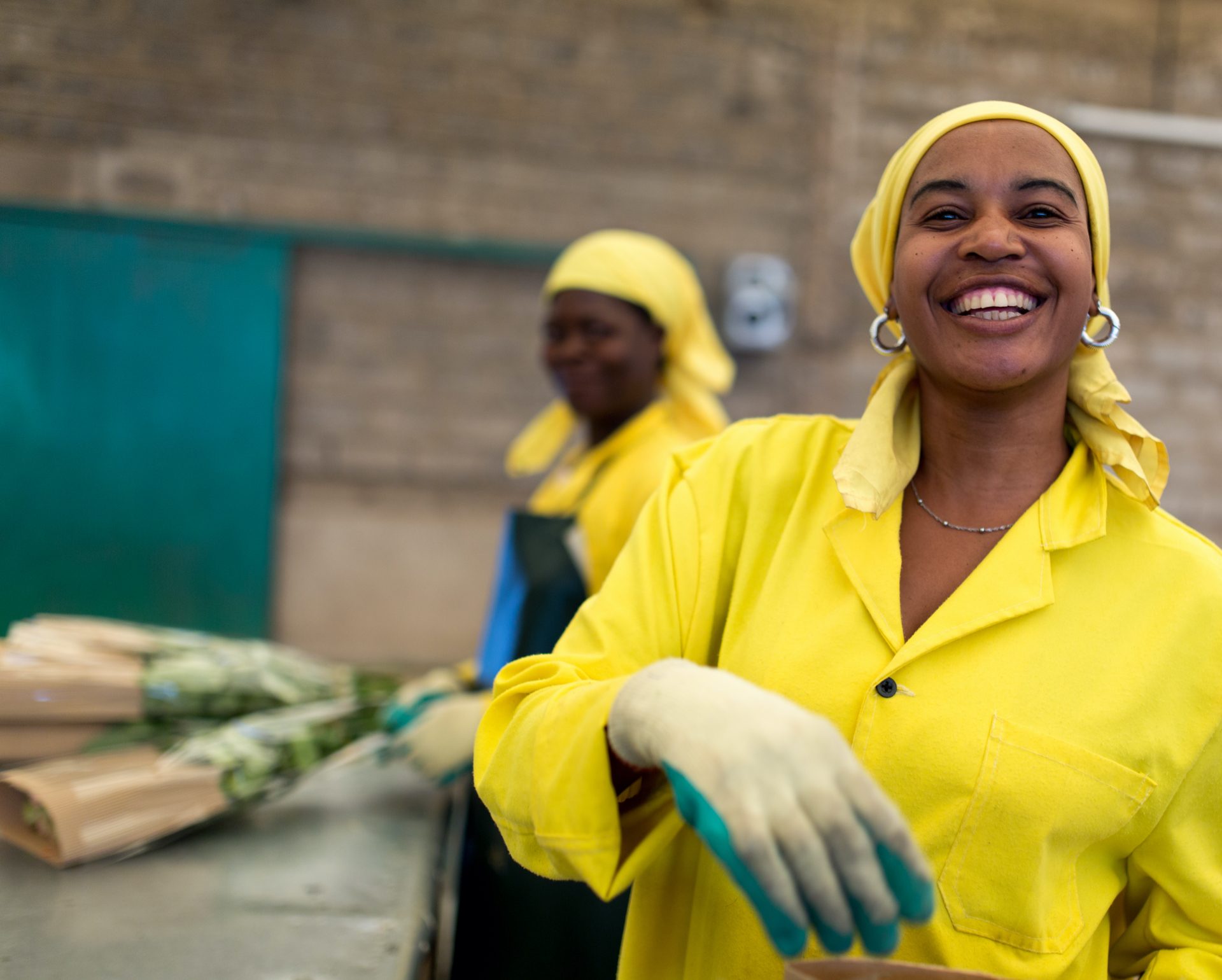Metropolis Coffee Company wants “Great Coffee for Everyone”
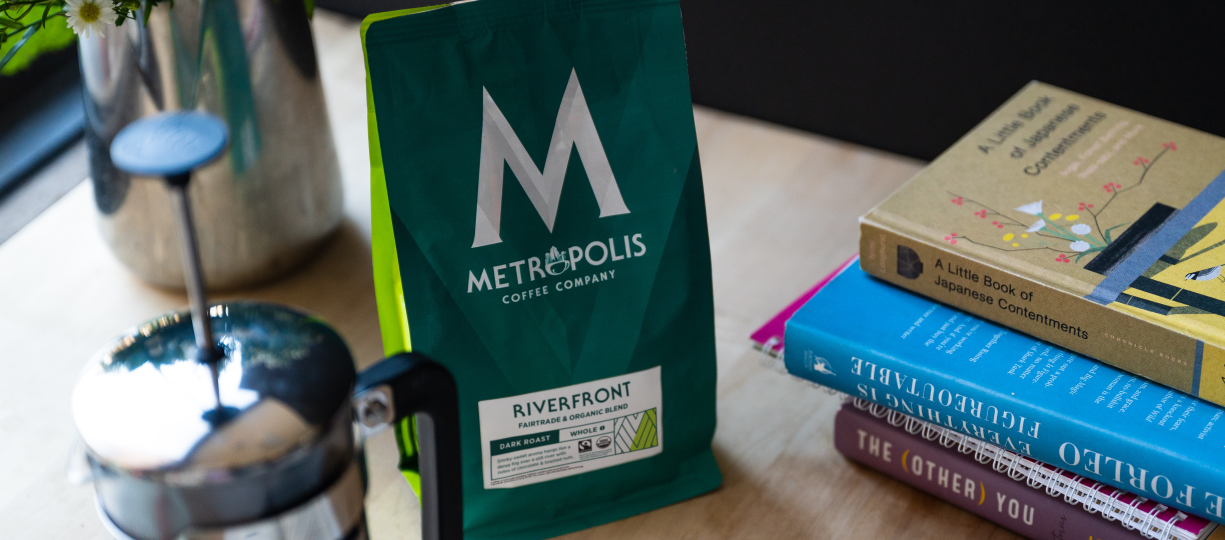
One of our newest brand partners, Metropolis Coffee Company, understands that great coffee means coffee that works ALL of the people who encounter it, from farmer to roaster to barista to coffee drinker. Metropolis recently launched four Fairtrade certified coffees, which are available in their Chicago café, via their online store, or through their coffee subscription program. We are delighted to have had the chance to speak with Tony Dreyfuss. This conversation spanned the gamut from Chicago origins to the botanic properties of caffeine and a farmer-centered critique of the role that cup score plays in the specialty coffee world.
Please introduce yourself – what is your role with Metropolis Coffee Company?
Hiya. I’m Tony Dreyfuss, along with my dad Jeff, the owner and founder of Metropolis.
Tell me about your company. What’s your mission?
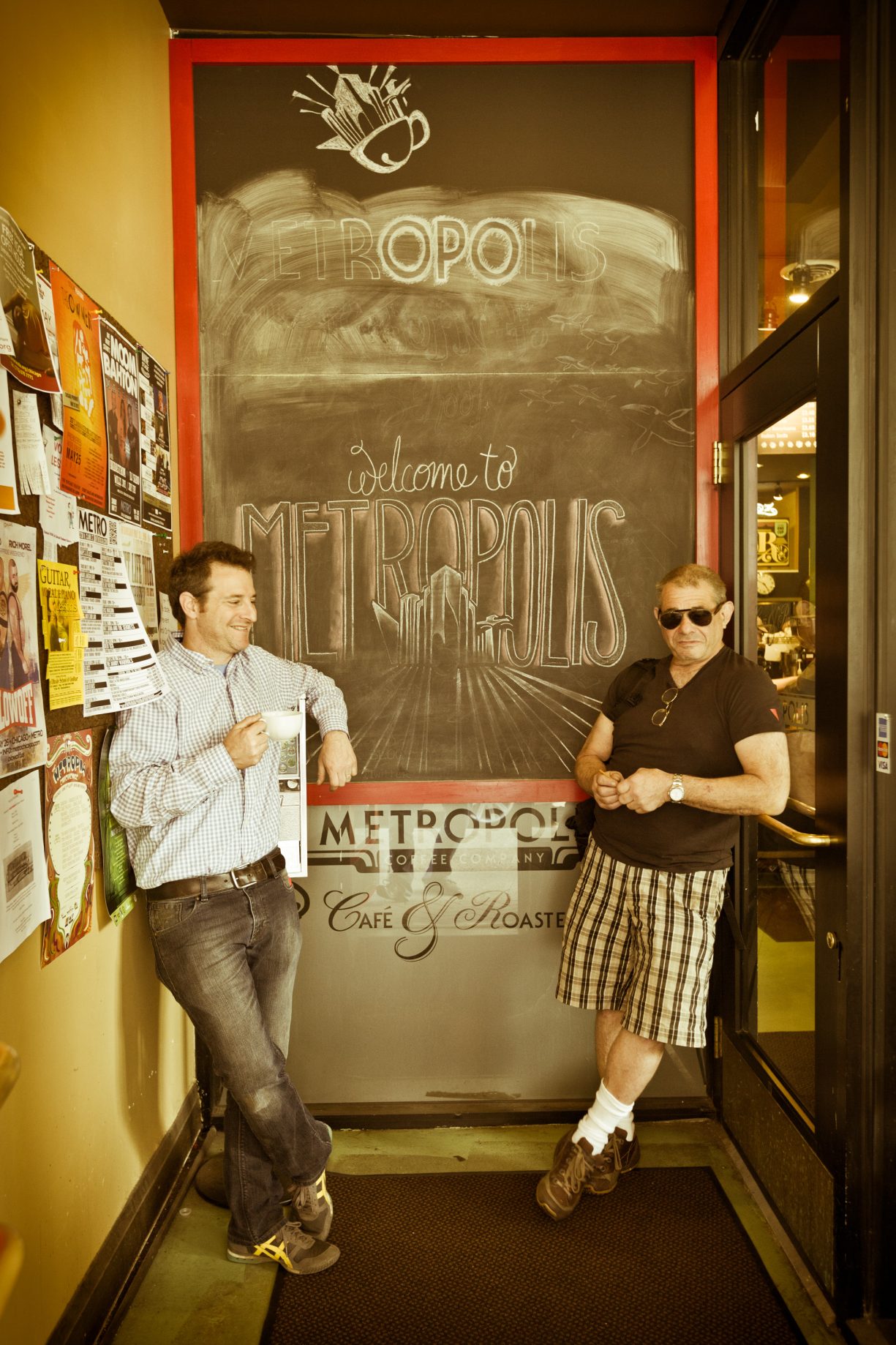 My dad and I started Metropolis 20 years ago in a storefront in Chicago’s Edgewater/Roger’s Park Neighborhood. It’s Chicago’s most diverse neighborhood. The neighborhood high school kids speak 65+ different languages!
My dad and I started Metropolis 20 years ago in a storefront in Chicago’s Edgewater/Roger’s Park Neighborhood. It’s Chicago’s most diverse neighborhood. The neighborhood high school kids speak 65+ different languages!
We started as a small roaster/retailer, serving coffee and idiosyncratic banter to our community, but we’ve really grown as a wholesaler, selling beans to all kinds of businesses around the US.
Our mission is “Great Coffee for Everyone.” It means that everyone who touches the coffee should find benefit–producers, roasters, baristas and coffee lovers alike. The more benefit, the greater the coffee. It’s about people. Coffee is great but people are greater.
What is the story behind your Fairtrade coffees? What makes them unique? And where are they being sold?
We’ve offered fair trade coffee since we opened and have become one of the largest–if not the largest–roaster of fair trade coffee in Illinois! We have four signature Fairtrade and organic blends on our permanent menu. Each one is dialed in for a different consumer.
We have Granville Blend, named after the street our café grew up on. It’s like a breakfast blend. Downright zippy!
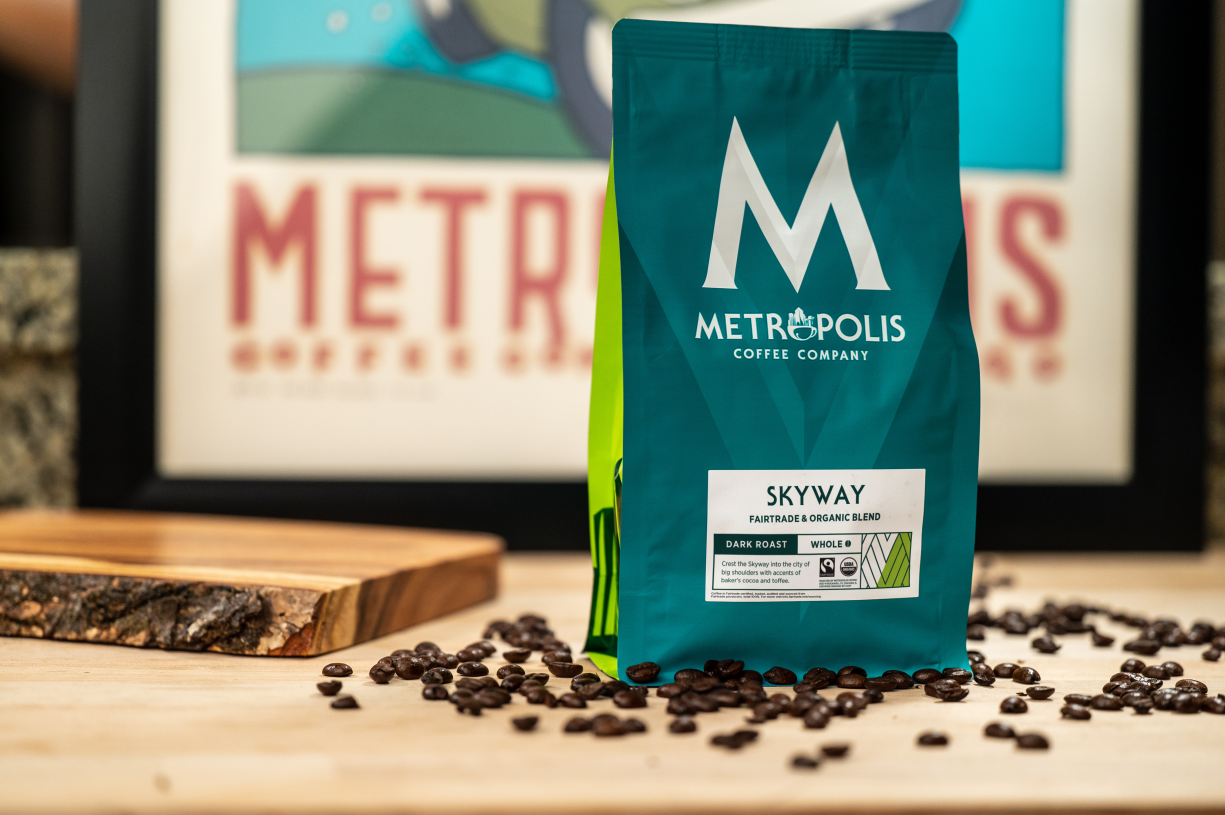 Next up is our Skyway Blend, named after the high rising expressway from NW Indiana into Chicago. Little known fact: The Blues Brother’s Bridge is just off the Skyway. This blend is a medium-dark brew that tastes like brownies. Good, fudgy brownies.
Next up is our Skyway Blend, named after the high rising expressway from NW Indiana into Chicago. Little known fact: The Blues Brother’s Bridge is just off the Skyway. This blend is a medium-dark brew that tastes like brownies. Good, fudgy brownies.
Our Fairtrade Dark Roast is called Fairtrade Riverfront Espresso, and it’s a nod to our new roasting digs on the north branch of the Chicago River. Its smoky and brooding and HEAVY!
Finally, there’s Fairtrade Decaf Xeno, named for our favorite Greek Eleatic Greek Philosopher and his eponymous paradox. Decaf IS a paradox, but easily solvable.
What excites you about Fairtrade? Why did you choose to certify your product with Fairtrade America?
The people and community around fair trade – that’s what gets me going. I’m excited by the connection between people and communities and cultures, despite our differences. We chose to certify back in 2003 because it was always a big part of our plan. We chose to change our certifier this year to Fairtrade America because we’ve learned that not all certifiers are the same, and that Fairtrade America better represents our mission in Great Coffee for Everyone.
What’s one thing about coffee that surprises you?
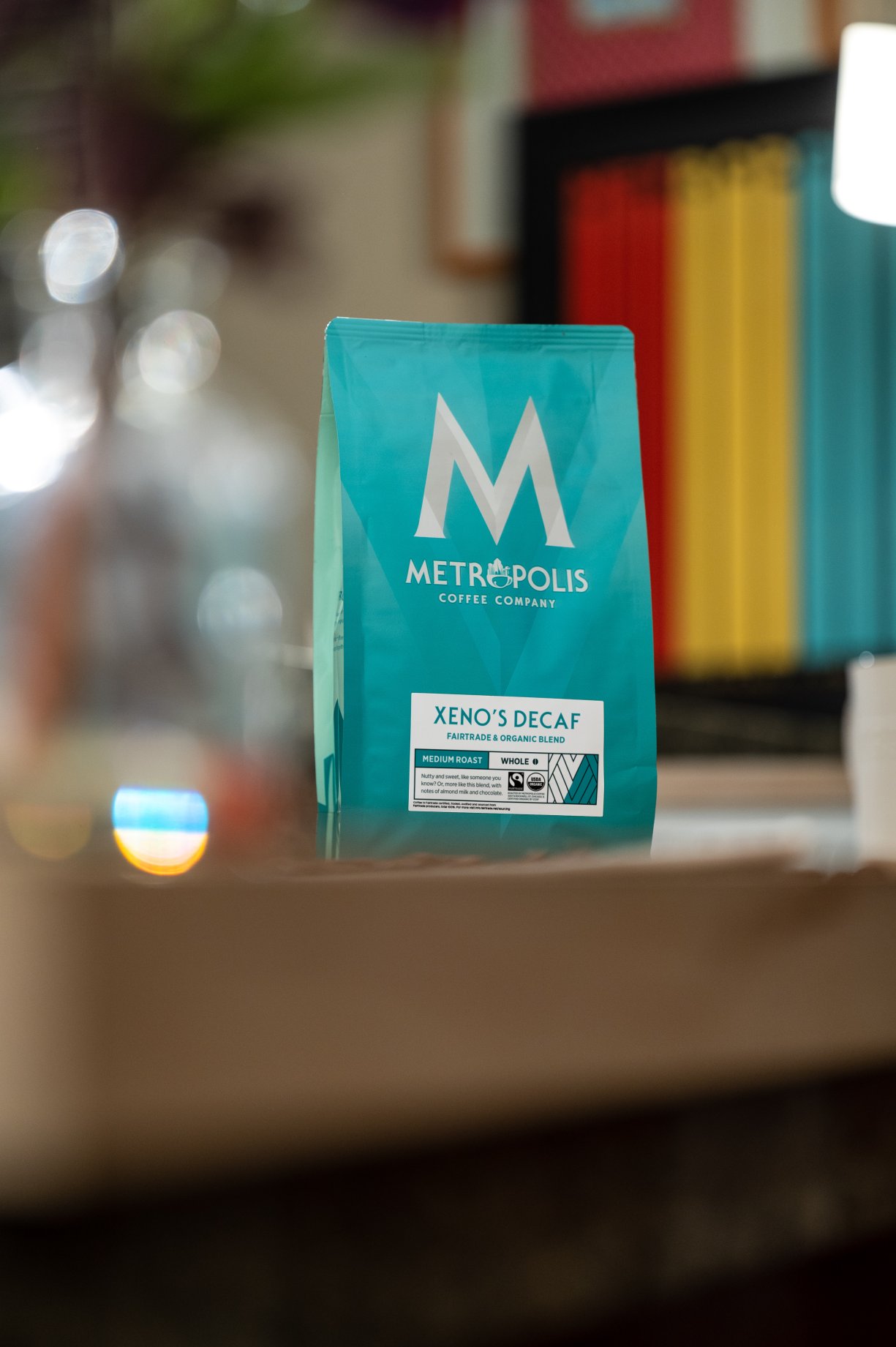 When I took my Q-Grader certification exam back in 2014 (fancy cert for coffee tasting, evaluation and knowledge), I learned that the amount of caffeine pre-roast is roughly the same post-roast. One of the most common questions I get is whether light roast or dark roast coffee have more caffeine. Actually, bean for bean, it’s going to be about the same.
When I took my Q-Grader certification exam back in 2014 (fancy cert for coffee tasting, evaluation and knowledge), I learned that the amount of caffeine pre-roast is roughly the same post-roast. One of the most common questions I get is whether light roast or dark roast coffee have more caffeine. Actually, bean for bean, it’s going to be about the same.
BUT…
Dark roast coffee weighs less than light roast coffee. A longer, hotter roast means that more of the moisture is roasted out of the bean. When we’re preparing coffee, we use a scale to measure the coffee. It will take more dark roast beans to make the same cup, so actually a cup of dark roast coffee will have more caffeine even though each bean is roughly the same caffeine as light roast.
Caffeine is a natural pest control for the coffee plant. It’s a pest poison. Lower [altitude] grown coffee like robusta has to have more caffeine because there are more pests at lower altitude.
How do you use your business to create a more sustainable and/or equitable world?
I’m interested in sustainability at scale (replacing less sustainable mainstream coffee with more sustainable.) If we think small, we’ll never make a dent in the fundamental inequity in the coffee industry. We have to think outside the specialty coffee bubble and create products that are aimed at consumers (format, flavor, price point, convenience) – what THEY want instead of what WE want. If we do that well enough, we can replace a lot of garbage with sustainable and equitable coffee.
What’s next for Metropolis Coffee Company?
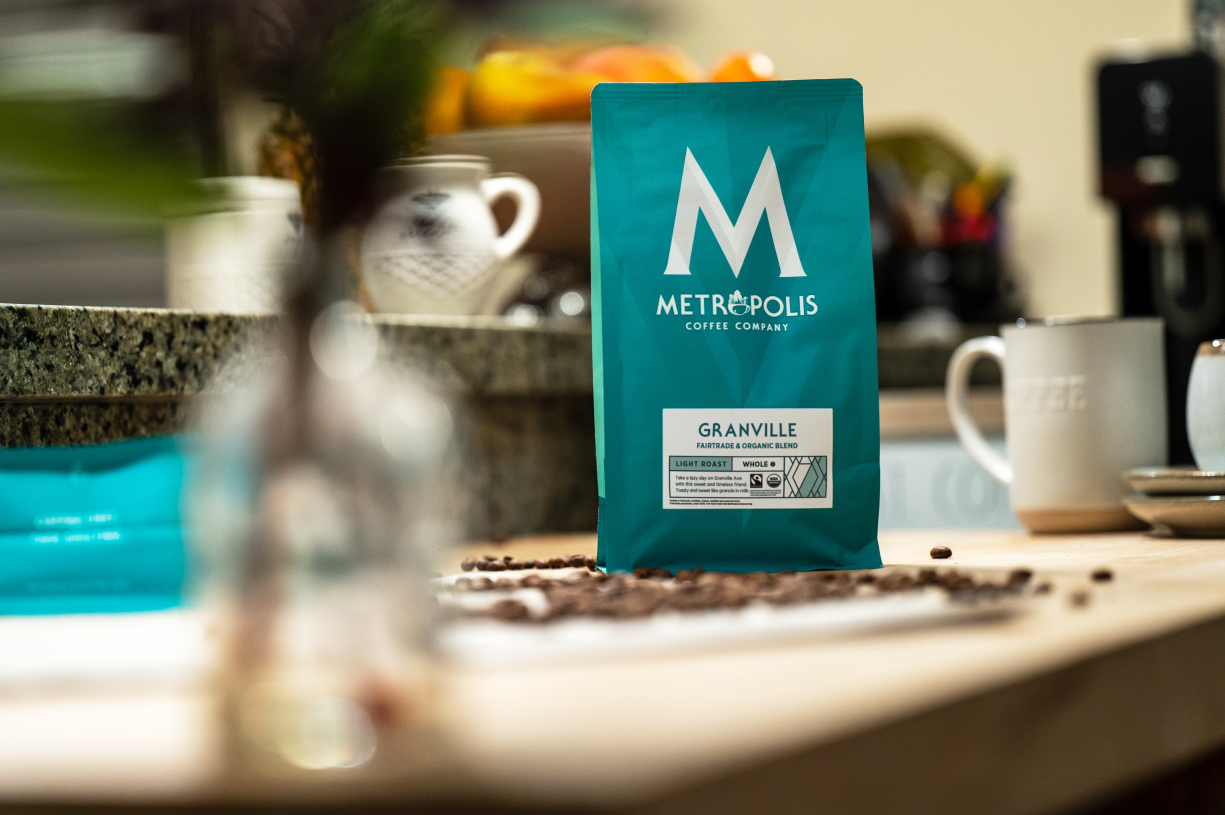 Last year we launched America’s first compostable espresso capsule compatible with Nespresso original line systems. We are building out that program both for Metropolis branded and co-packed/private label brands. We bring Great Coffee for Everyone into this program as well and demand that the beans that are used reflect our ethos. We will be expanding our product line into more Fairtrade coffees this year. Most single-serve espresso is ecologically and economically unsustainable. Ours are not. We can make more than 100 million ecologically and economically sustainable espresso capsules per year on our first machine. As mentioned–we believe in the power of scale.
Last year we launched America’s first compostable espresso capsule compatible with Nespresso original line systems. We are building out that program both for Metropolis branded and co-packed/private label brands. We bring Great Coffee for Everyone into this program as well and demand that the beans that are used reflect our ethos. We will be expanding our product line into more Fairtrade coffees this year. Most single-serve espresso is ecologically and economically unsustainable. Ours are not. We can make more than 100 million ecologically and economically sustainable espresso capsules per year on our first machine. As mentioned–we believe in the power of scale.
If you could redesign how the coffee world works to better support farmers, what would you do?
There are a couple of things that stand out to me. One is that the specialty coffee industry relies too much on cup score. This focus is harmful to producers in that there are so many coffees that don’t score particularly well but that are highly desirable to consumers. Coffees that are clean, sweet and mellow score fairly low (read: get lower price), while coffees that are wildly acidic and funky score highly. There is a market for every coffee a producer produces, regardless of cup score. We can and should treat each coffee as beautiful and find a home for it.
We can and should treat each coffee as beautiful and find a home for it.
Second, I think we need to focus on farm gate price rather than FOB (Free-on-board) price. Farm gate is what farmers make. FOB is what the exporters make. Farm gate Fairtrade Minimum Price should be country to country, rather than one international price, taking into account each country’s unique cost to market.
What’s one thing (big or small) that you’ve learned about Fairtrade since starting to work with us?
That not all fair trade certifiers are the same. Our old certifier fought to keep prices low for producers, while Fairtrade America fought to raise the Fairtrade Minimum Price. Fair trade has to mean something, and you are fighting the good fight!
We’re in this together
Fairtrade America partners with brands on the journey to certification and beyond. We can help with everything from finding a certified supply chain to marketing your newly certified product.
Get in Touch
